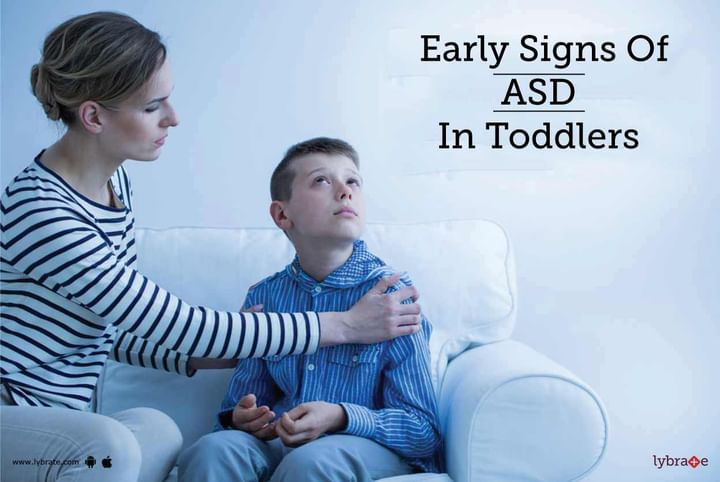Early Signs Of ASD In Toddlers!
Autism Spectrum Disorder or ASD is a condition associated with brain development. ASD affects the way an individual perceives others and socializes with a group of people. This disorder shows up in early childhood; it includes repetitive and limited behaviour patterns and thus, makes it difficult for the affected child to interact or communicate with others.
The word ‘spectrum’ in ASD refers to a range of signs related to the condition. Some children develop the symptoms of the disorder right from infancy, while others exhibit the same within 12-36 months of birth.
Signs to Watch Out for-
Early signs of Autism Spectrum Disorder in toddlers include-
• Reduced eye contact
• Lack of response (to their name)
• Difficulty learning things
• Trouble communicating
• Speaking in an abnormal tone
• Repeating words, not knowing where to place them in a sentence
• Inability to express feelings/emotions
• Inappropriate approach to social interaction – being aggressive, destructive, or passive
• Difficulty recognizing non-verbal cues
• Lack of coordination
• Oversensitive to touch, sound, or light
• Repetitive movements - spinning, rocking, hand flapping
Every child with ASD has a unique behaviour pattern.
If you notice the above traits in your child and are concerned about his/her development, then you should visit a doctor right away. A specialist can recommend an appropriate line of treatment to manage the symptoms and help your child thrive despite being autistic.
Autism and Nutrition – Is There Really a Link?
Caring for an autistic child can be challenging on many levels, and healthful eating is no exception. A child living with Autism Spectrum Disorder may not be getting enough nutrients, primarily because they are not patient enough to sit through their meals.
If your child has ASD, you should definitely reach out to a paediatrician. He/she will most likely prescribe a ‘special diet’ to provide your child with the essential nutrients.
• Switch to a casein-free, gluten-free diet. Exclude foods such as – fishes, eggs, seafood, soy products, nuts etc. Children with ASD have an abnormally leaky gut, and these food items often cause inflammation in the gut. This further deteriorates the symptoms.
• The doctor may recommend a low-fat, high-protein ketogenic diet – cottage cheese, avocados, poultry meat, coconut oil etc.
• Serve your child a good portion of vitamin-rich foods – cereals, fruit juice, oatmeal etc. However, make sure that you are aware of any allergic reaction your child may have before incorporating these in their diet.
Health experts state that for children living with this condition, a balanced, nutritious diet can make all the difference in the world – it can improve their learning ability, help them to express themselves more and process information better.



+1.svg)
